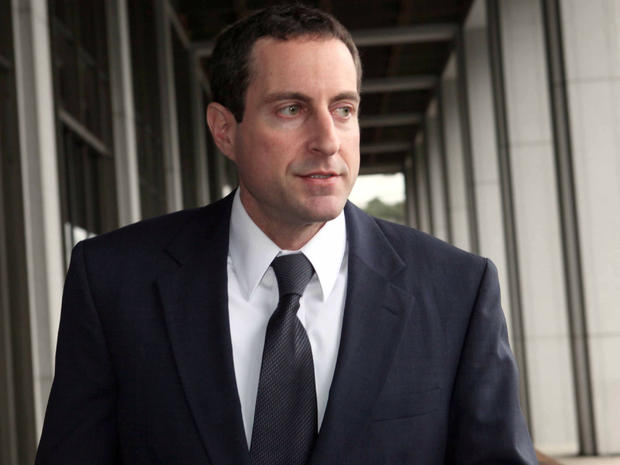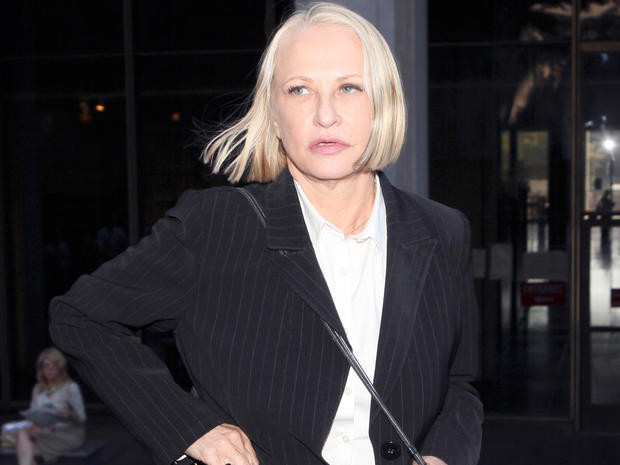Court: Anna Nicole Smith case judge wrongly tossed convictions
It's been five years since Anna Nicole Smith's death, but the legal drama surrounding the troubled model still continues.
An appellate court said Thursday that a trial judge wrongly dismissed conspiracy convictions against Smith's psychiatrist and manager at the end of a contentious trial centering on celebrities' use of prescription drugs.
The ruling came after Superior Court Judge Robert Perry chose to throw out the 2010 jury verdict that manager Howard K. Stern and psychiatrist Khristine Eroshevich conspired to obtain prescription drugs for Smith by using false names.
The judge found it was not unusual in the celebrity world Smith inhabited for fake names to be used to protect privacy.
- Pictures: Anna Nicole Smith
- Pictures: Anna Nicole: The mystery begins
- Pictures: Smith's saga continues
- Pictures: Anna Nicole: A decision made
The Second District Court of Appeals reversed those findings, saying there was enough evidence to support the conspiracy convictions. It said Stern cannot be tried, but Eroshevich might get another trial. However, the judge also could take different actions because the appellate court returned the case to him with no instructions.
"We express no opinion on how the trial court should exercise its discretion," the ruling said.
Lawyers called the decision confusing.
"I'm not sure I fully understand it," said attorney Bradley Brunon, who represents Eroshevich. "What they said is that what the judge did in dismissing for insufficient evidence is wrong. But he could get to the same place by reviewing the case as what we call a 13th juror."
Brunon said he would have to do additional research to understand the potential implications.
Attorney Steve Sadow, who represents Stern said it was clear from the decision that Stern cannot be tried again without double jeopardy violations. But he said Perry could again review Stern's motion for a new trial.
"If he granted the motion, Howard still could not be tried again," Sadow said.
Sadow said the appeals court obviously had been wrestling with the issue of double jeopardy and had the parties brief it several times.
The convictions of Stern and Eroshevich were minor in the overall scope of the case. Most of the 11 counts resulted in acquittals.
The prosecutors who brought the appeal said they had not yet read the decision and had no comment. Sadow said prosecutors could appeal to the California Supreme Court.
Stern and Eroshevich were convicted on Oct. 28, 2010, in the case of the death of the former Playboy model and reality TV star.
In September of last year, prosecutors filed an unusual appeal saying Judge Perry was biased and had created a celebrity exception to the law. The appellate court did not address these points.
The case involved prescriptions given to Smith in the months before the 39-year-old died in Florida on Feb. 8, 2007, of an accidental drug overdose. The defendants were not charged with causing her death.
The two guilty verdicts against Eroshevich and Stern on conspiracy counts involved the use of false names to obtain prescription pain medications for Smith. Eroshevich also was convicted of one count of obtaining Vicodin under a false name.
Perry dismissed the conspiracy counts and reduced the one conviction against Eroshevich to a misdemeanor with a sentence of one year of probation and a $100 fine. Her lawyer said she has fulfilled those terms.
At trial, Perry suggested authorities had chosen the wrong case to prove their point and indicated they did not understand the legislative intent of the law involving prescription drugs.
"There is no doubt that there are doctors who are nothing more than pill pushers and should be prosecuted and imprisoned.," he said in his ruling. "This case did not involve such doctors."
A co-defendant, Dr. Sandeep Kapoor, who was Smith's physician, was acquitted of all charges.
The defendants' nine-week trial was the final act of the long-running drama centering on the blonde beauty's troubled life, which was documented on reality TV, in tabloids and in trial testimony.

